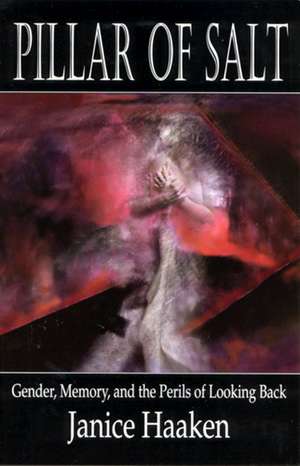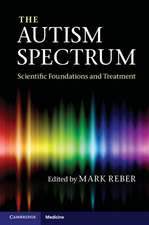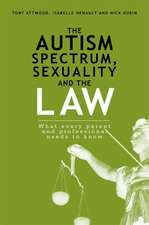Pillar of Salt: Gender, Memory, and the Perils of Looking Back
Autor Janice Haakenen Limba Engleză Paperback – iun 2000
Pillar of Salt introduces the controversy over recollections of childhood sexual abuse as the window onto a much broader field of ideas concerning memory, storytelling, and the psychology of women. The book moves beyond the poles of “true” and “false” memories to show how women’s stories reveal layers of gendered and ambiguous meanings, spanning a wide historical, cultural, literary, and clinical landscape. The author offers the concept of transformative remembering as an alternative framework for looking back, one that makes use of fantasy in understanding the narrative truth of childhood recollections.Haaken provides an alternative reading of clinical material, showing how sexual storytelling transcends the symbolic and the “real” and how cultural repression of desire remains as problematic for women as the psychological legacy of trauma.
Preț: 275.24 lei
Nou
Puncte Express: 413
Preț estimativ în valută:
52.67€ • 55.24$ • 43.84£
52.67€ • 55.24$ • 43.84£
Carte tipărită la comandă
Livrare economică 01-15 aprilie
Preluare comenzi: 021 569.72.76
Specificații
ISBN-13: 9780813528373
ISBN-10: 0813528372
Pagini: 352
Dimensiuni: 152 x 229 x 23 mm
Greutate: 0.54 kg
Ediția:None
Editura: Rutgers University Press
Colecția Rutgers University Press
ISBN-10: 0813528372
Pagini: 352
Dimensiuni: 152 x 229 x 23 mm
Greutate: 0.54 kg
Ediția:None
Editura: Rutgers University Press
Colecția Rutgers University Press
Notă biografică
Janice Haaken is a professor of psychology at Portland State University, and a clinical psychologist in private practice.
Cuprins
Introduction : Looking back
pt. I. Frameworks for looking back : gender, memory, and social pathology
Family remembrances : a daughter and a mother look back
The ghost in the machine : emotion and the science of memory
The trauma model : insights and hysterical blind spots
Psychoanalytic feminism : bridging private and public remembrances
pt. II. Recovering historical memory : sexual storytelling, hypnosis, and hysteria
Social remembering and the legendary past
Hypnotic encounters : eroticized remembering and altered states
Hysterical heroines
pt. III. Clinical storytelling and contemporary social dilemmas
Testifying to trauma : the sexual abuse recovery movement and feminist clinical practice
Speaking in tongues : multiplicity and psychiatric influence
Between the devil and the deep : satanic ritual abuse narratives and cultural crises
Sex, lies, and therapy
Conclusions : Looking back and looking forward
pt. I. Frameworks for looking back : gender, memory, and social pathology
Family remembrances : a daughter and a mother look back
The ghost in the machine : emotion and the science of memory
The trauma model : insights and hysterical blind spots
Psychoanalytic feminism : bridging private and public remembrances
pt. II. Recovering historical memory : sexual storytelling, hypnosis, and hysteria
Social remembering and the legendary past
Hypnotic encounters : eroticized remembering and altered states
Hysterical heroines
pt. III. Clinical storytelling and contemporary social dilemmas
Testifying to trauma : the sexual abuse recovery movement and feminist clinical practice
Speaking in tongues : multiplicity and psychiatric influence
Between the devil and the deep : satanic ritual abuse narratives and cultural crises
Sex, lies, and therapy
Conclusions : Looking back and looking forward
Recenzii
Writing from a feminist perspective, Haaken suggests that when, through male oppression, women are unable to speak openly, storytelling becomes a covert means of expressing their experiences, in particular sexual experiences. . . . An enlightening account of the importance of the cultural medium in which we tell our memories to others.
Pillar of Salt . . . reframes recollected sexual abuse as storytelling and places it in historical perspective. It shifts the focus from individual pathology to considerations of the collective and social dimensions of memory, trauma, and sexuality. . . . A resolute and decisive refusal to muffle the complexity of womenÆs sexual experiences.
Haaken disentangles the threads of meaning that provide the historical backdrop to contemporary appropriations of memories of sexual abuse. In her rich admixture of psychoanalysis and history, she notes that issues of sexuality, aggression, and memory have haunted women in various guises throughout Western history. . . . Through her study of memory, Haaken does a superb job of returning feminism to the difficult questions that mark the relationships among power, sexuality, agency, and subjectivity. What she adds to the mix is a keen historical and clinical sensibility.
Pillar of Salt leaves the reader not with a firm grasp on the recovered memory debate, but rather with an increased sense of doubt and skepticism of each sideÆs basic arguments. One may even begin to question some of the most basic foundations of science, notably the mere existence or possibility of objectivity. HaakenÆs contribution provides a broader understanding of the reasons why recovered memory has aroused such fervent attention and crated such rigid divisions among those involved in the debate.
I hope that this wonderful book, written with a passionate and sympathetic intelligence, reaches a wide audience. ItÆs not an easy read, for Janice Haaken deliberately spins a dense web of reference, pursuing paths across the contemporary psycho-political landscape. But her scholarship is marvellously diverse and well-directed, and her writing easily shifts between sad or playful fantasy, and insistently engaged political or empirical analysis. Around two central themes, gender and memory Haaken plays a dizzying set of interconnected melodies, spanning psychoanalytic theory and experimental cognitive psychology, biblical interpretation, and the history of science.
Haaken offers the most subtle and insightful feminist reflections to date on the confusion raging around memory and narratives of trauma and abuse. Beautifully written, her book draws upon rich therapeutic experience and rigorous theoretical knowledge as it skillfully moves between the intricacies of women's experiences and the complexities of the broader cultural landscape. An indispensable resource.
A bold attempt to recover the lost art of storytelling and find a framework for undoing an important piece of today's unhappiness.
The writing in the book is beautiful: thick, lush, like the provocative ideas that come frequently, sometimes two or three on a page. . .The book generally leaves one in awe of the intelligence and breadth of the author but also with a sense of urgency that these ideas should be æout thereÆùdiscussed and made a part of the many intellectual debates of the last twenty years.
Pillar of Salt cogently and persuasively takes up knotty questions of testimony and truth that many of us have been struggling with. Scholars and students in psychology, psychotherapy, women's and cultural studies, trauma memoir, and the history of memory will welcome its wide-ranging framework. General readers, too, will find it an engaging study of recovered memory. Haaken's analysis is at once learned and lucid, deeply reflective and wonderfully concrete.
Without denying the pervasiveness or trauma of sexual abuse, Haaken asks questions about the form of the public and professional debates, particularly as they involve recovered memories. Her fascinating, original, and persuasive argument moves between subtle interpsychic experiences to the larger social/cultural/political arena where they are given additional meanings, transformed, and then reinternalized. It is a must read for therapists, womenÆs studies scholars, womenÆs advocates, and those interested in sophisticated understanding of gender politics.
Richly evocative, wise, persuasive, and sometimes startling, Pillar of Salt remaps the contested terrain of memory, sexual abuse, and trauma theory.
Janice Haaken explores the controversy over recovered memories of sexual abuse within historical, cultural, sociological, and psychological frameworks. . . . Among the arguments Haaken includes in the book is the subjectivity of memory in general. The concept of transformative remembering emphasizes the importance of context and the personal significance of events in shaping memory. . . . [The book] leaves the reader not with a firm grasp on the recovered memory debate, but rather with an increased sense of doubt and skepticism of each sideÆs basic arguments. . . . HaakenÆs contribution provides a broader understanding of the reasons why recovered memory has aroused such fervent attention and created such rigid divisions among those involved in the debate.
Descriere
Pillar of Salt introduces the controversy over recollections of childhood sexual abuse as the window onto a much broader field of ideas concerning memory, storytelling, and the psychology of women.









